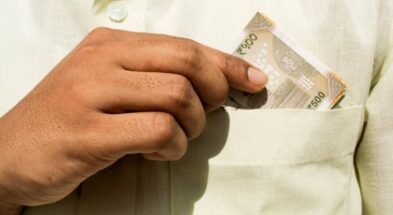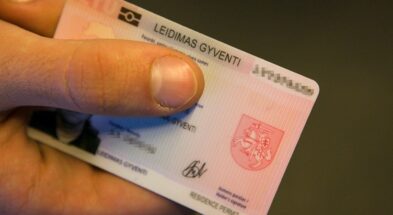If a child is born in Dubai, it is essential to register the birth to get their identification documents. Residents have a maximum period of 30 days to register their child’s birth in the UAE. If the parents are of different nationalities, the child will adopt the nationality of the father.
All expatriates must get birth certificates attested by the Ministry of Health and Prevention and the Ministry of Foreign Affairs and International Cooperation. Birth certificates stamped by the Department of Health of Abu Dhabi (HAAD) or Dubai Health Authority (DHA) are equivalent to the seal of the Ministry of Health and Prevention.
Residents have 120 days from the birth of their child to arrange the formal documents which include birth certificates, passports, Emirates ID and visas of their newborn babies. If the residence visa is not finalized within 120 days, then a fee of AED100 per day would be charged for each day over the 120-day period, and the baby will not be allowed to exit the country.
To process the birth certificates, a parent must submit the following identification papers to the hospital where the child is born, or to the relevant health authority in the emirate:
- Attested Arabic translated marriage certificate, if it is in a language other than Arabic
- Copy and original passport and residence visa of husband and wife
- Birth notification details from the hospital
- Discharge summary from the hospital.
As part of the Dubai government’s repeated attempts to facilitate legal procedures for foreigners residing in the Emirate of Dubai, Sheikh Maktoum bin Rashid Al Maktoum, Deputy Ruler of Dubai and Chairman of the Judicial Council, issued Dubai Resolution No. 22 for the year 2021 regarding the issuance of birth certificate for foreign parents residing in the Emirate of Dubai. The registration process for the newborn permits the registration of the newborn for any of the parents.
Under the new resolution, any of the foreign parents residing in the Emirate of Dubai can obtain a birth certificate for their newborn by applying to the Dubai Courts without prejudice to the conditions for acknowledging paternity under the federal Personal Status Law. The concerned authorities in the Emirate of Dubai, each according to its competence, shall take the necessary measures to implement the order to issue the birth certificate of the newborn as per order from Dubai Courts which shall be in accordance with the provisions of this resolution.
Procedures to be followed to issue a birth certificate for a newborn:
An application to issue a birth certificate for a newborn referred to in Article (1) of this decision shall be submitted by virtue of a petition by order to the Emergency Matters Judge in Dubai Courts in accordance with the mechanism and form approved by the Court, provided that the application is supported by the following documents:
A report issued by the hospital where the birth occurred, including proof of this incident.
An explicit acknowledgement by the parents of the newborn that there is a marital relationship between them, and the lineage of the newborn to them.
The Emergency Matters Judge in Dubai Courts will pass an order to issue a birth certificate for the newborn according to the form approved by the Court in this regard
Cost of issuing a birth certificate in Dubai:
Application fee on MOHAP website: AED 65 (including e-Dirham charge) for a certificate in Arabic or English
Birth certificate Attestation fee by the Ministry of Foreign Affairs. AED 60 for expats (excludes typing centre charges) and AED 50 for UAE Citizens)
Typing centre charges can range anywhere from AED 200 up to AED 500, depending on the package you select.
Steps on how to get a birth certificate in Dubai:
Step 1: Get a birth certificate
Step 2: Get the certificate attested
Step 3: Issue the identification documents
Following are the channels to apply for a birth certificate
- Service 1 Center in Emirates Towers
- Public hospitals in Dubai including Dubai Hospital, Rashid Hospital and Latifa Hospital
- The preventive medicine centre in Al Baraha (Kuwaiti Hospital)
The MOHAP website
Before this Decision, many unmarried couples could not issue a birth certificate for their newborns. Under Sharia law, pregnancy out of wedlock is considered adultery.
Therefore as per many Islamic scholars, the father does not have the right to register the baby under his name, even if he marries the mother after the pregnancy.
As a result, parents faced legal troubles as courts used to reject the couple’s request to issue a birth certificate for the baby in line with Sharia Law. This problem had many consequences on both the parents and newborns. This included stress, being unable to issue a birth certificate for the infant, no official documents, no emirates ID, no medical insurance or a passport.
Under the new Decision, expatriates living in Abu Dhabi can now easily apply to issue a birth certificate for their babies, regardless of when the pregnancy took place or whether the couple was married or not when the pregnancy happened. It is no longer an issue when the mother was pregnant or whether the couple was married or not when the pregnancy took place: All that matters is whether the couple is married at the time of the application.
Expatriate unmarried couples living in Abu Dhabi, provide evidence of marriage at the time of making the application. It does not apply to the citizens of the UAE. The Decision is part of the UAE’s modern vision toward making the country one of the most attractive and tolerant places to live and work.
Abu Dhabi adopted a liberal view by prevailing personal rights and focusing on the baby’s ‘best interests’ and family’s stability. The Decision also reflects the UAE society’s demographic cosmopolitan nature and brings the law hand in hand with social and economic development and people’s needs.
The UAE is taking many bold measures to modernise its legal system by creating a more tolerant, modern and open-minded legal arena, focusing on women’s rights, individual freedom and liberal values, with an apparent decline of strict sharia jurisprudence.
The Abu Dhabi Judicial Department made an application form for this purpose. It’s available in both English and Arabic in plain language and user-friendly design. Once submitted, the couple will get a court order within a few days, granting them the right to issue a birth certificate as stated by Hesham Elrafei, Legal Counsel, Abu Dhabi Judicial Department (Abu Dhabi, UAE).



















